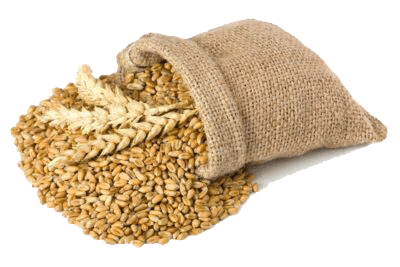MICROSOFT DYNAMICS 365 CONSULTING
Optimize operations with Microsoft Dynamics 365 consulting.
enVista’s Microsoft Dynamics 365 consultants help organizations like yours achieve their business objectives. As a leading Microsoft Solutions Partner, we have the expertise to help you integrate Microsoft solutions to streamline your workflows, address challenges and improve operational efficiency. Our designations in Business Applications, Data & AI, Digital & App Innovation and Modern Work, combined with extensive industry experience, help us offer faster time-to-value and generate quantifiable results in your industry.
Home » Technology » Microsoft Business Solutions » Dynamics 365 Consulting
Unify business processes with enVista’s Dynamics 365 consulting.
A major challenge many organizations face is a lack of integration between their suppliers, customers and end-to-end operations. This leads to them operating in the dark, unable to pull together the data they need to make decisions about resource management and efficiency.
Microsoft Dynamics 365 solves these challenges by unifying data from across Microsoft applications and third-party data sources to provide a single source of truth. By offering a detailed view into customer and operations systems, D365 empowers you and your team to make data-driven decisions, collaborate more effectively and work more efficiently.
As a Microsoft Solutions Partner, enVista is equipped to provide consulting services for Dynamics 365 Finance and Supply Chain Management. We also offer services to assist with the challenges of an omnichannel market via Dynamics 365 Sales and Customer Insights, along with solutions for retailers through Dynamics 365 Commerce. Our end-to-end solutions also include Dynamics 365 Field Service. Subject matter experts may benefit from our ERP consulting services to help them integrate and benefit from the Business Central app.
Dynamics 365 Finance
Improve your financial decision-making, mitigate risks and reduce operational costs with key financial insights.
Build a resilient supply chain, resolve quality issues and meet fluctuating customer demand with agile processes.
Increase profitability and better track the performance of your sales team with AI-powered customer insights.
Enhance customer experiences and optimize operations by creating personalized journeys and connecting sales and marketing
Empower your support team with AI-driven insights to improve service quality, agent productivity and customer loyalty across all channels.
Boost field service outcomes by integrating AI tools and IoT data to improve scheduling, maintenance and customer satisfaction.
Deliver a superior shopping experience with a unified commerce solution that drives customer satisfaction and operational efficiency.
Simplify enterprise management with end-to-end insights into finance, operations, inventory, purchasing, manufacturing and warehouse management.
Unify project data and resources to optimize collaboration, increase productivity and ensure project success.
A Powerful, Cloud-Based ERP and CRM Platform
Microsoft Dynamics 365 unifies data across the enterprise, providing a clean, reliable and easy-to-use data source to drive business decision-making and productivity. Combining data from your ERP and CRM platforms can help you build a better customer experience and use your material and human resources more efficiently.
As a Microsoft Solution Partner, enVista focuses on people and process change, user adoption and alignment with business strategy. Check out a few of our Microsoft case studies for real-world examples of diverse organizations harnessing enVista and Microsoft to drive significant improvements in operational efficiency, customer satisfaction and overall business agility.
End-to-End Dynamics 365 Implementation Services With enVista
As a Microsoft Solutions Partner, enVista helps organizations take advantage of the data and tools that are available to them. Modern businesses are faced with numerous challenges when it comes to dealing with data lakes from disparate sources. By unifying your systems, we can offer a single source of high-quality data you can depend on for decision-making.
Migration and Integration: Readying Your Data
enVista’s D365 consultants can help your organization avoid common integration pitfalls, accurately and efficiently unifying your data from multiple applications. We work with key stakeholders to identify the most crucial needs and let them lead the way throughout the migration so we can deliver a successful product.
Implementation and Customization for Your Needs
enVista’s in-depth assessment of your organization and proven implementation methodology enable our team to help you implement a Microsoft D365 solution that is perfectly tailored to your unique needs. Get access to the dashboard views and integrations that will keep your operations running smoothly.
Dynamics 365 Training
A technical rollout is only useful if your employees can take full advantage of it. Our D365 consultants provide hands-on training, including practical workshops that help your team understand the platform’s benefits and how it can support their day-to-day work.
Our training covers all the Microsoft Dynamics 365 apps and Copilot to equip your employees with the latest solutions and AI technologies.
Dynamics Support and Managed Services
enVista’s Application Management Services for D365 take on the day-to-day management of your environment to help you maintain a consistent strategy for embracing workflow automation, gathering and storing data and developing applications and ongoing innovation. Our experts help you increase ROI on your D365 and keep your environment running at peak performance.
Proven experience. Maximum results.

Migrating ERP to Microsoft Dynamics 365 for Mennel Milling
- Teamed with enVista to implement Microsoft Dynamics 365 Finance and Dynamics 365 Supply Chain Management in just seven months
- Optimized production and operation activities for future growth
- Explored additional process improvement opportunities
- Integrated and automated back-office processes
See more enVista and Microsoft Dynamics 365 success stories and discover how we’ve helped organizations across all industries with their operational transformations.

Featured Insights

White Paper
Hidden Treasures of Advanced Warehousing
Make the most of Microsoft Dynamics 365’s Advanced Warehousing module and gain insight into the hidden treasures to unlock value.

Blog
The Power Duo: How GS1 Standards Supercharge Efficiency in Microsoft D365 Supply Chain
Discover how GS1 standards and Microsoft D365 boost traceability, reduce errors and automate warehouse operations for supply chain efficiency.

Case Study
International Provider for Live Events and Studio Productions Optimizes Operations and Back Office Processes
enVista’s Microsoft Dynamics 365 implementation services lead to “business game-changer” for international client.

Blog
Windows 10 End of Life: What’s Next for Your Business?
Windows 10 support ends Oct 14, 2025 – learn how to upgrade to Windows 11 to stay secure, compliant and productive with expert migration support.
Let's have a conversation.®
enVista’s Dynamics 365 consultants deliver exceptional solutions to challenging problems. Discover how we can assist with your organization’s digital transformation. Whether you’re looking to implement Dynamics 365 or other Microsoft business solutions, our training and consulting services can put you on the right path. Get in touch today to book an initial consultation.



